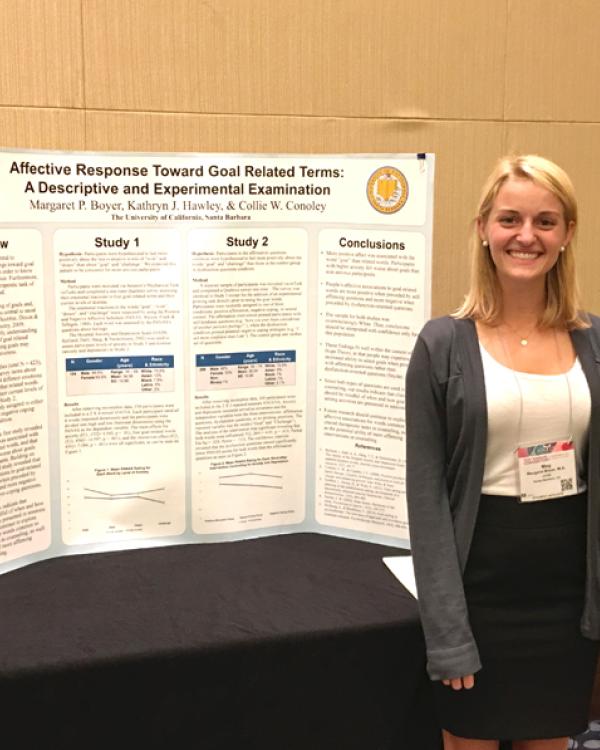
Meg Boyer of UC Santa Barbara’s Gevirtz School not only presented at the 125th Annual American Psychological Association Convention in Washington, D.C. August 3-6, but she also was presented with the APA Division 17 Section on Positive Psychology Student Research Award.
Her poster presentation, co-authored with Kathryn J. Hawley and Collie Conoley, was titled “Affective Response Toward Goal Related Terms: A Descriptive and Experimental Examination.” Since the setting of goals and, particularly, approach goals, is central to most counseling approaches, understanding the emotional associations of goal related words and the timing of setting goals might increase practitioners’ effectiveness. In two studies participants responded to survey items about how much they associate 24 different emotions with the word “goal” and other related words. Participants also reported their current levels of depression and anxiety. In Study 2, participants were randomly assigned to either an affirmation condition, a negative coping condition, or a control condition. Findings from the first study revealed that more positive affect was associated with the word “goal” than related words, and that anxious participants feel worse about goals than non-anxious participants. Building on these findings, the second study revealed that people’s emotional associations to goal-related words are more positive when preceded by self-affirming questions and more negative when preceded by negative-coping questions. The results indicate that clinicians should be mindful of when and how goal-setting activities are presented in sessions. Future research should continue to explore emotional associations for words common to crucial therapeutic tasks in counseling, as well as the potential utility of more affirming interventions in counseling.
Meg Boyer is a third-year Department of Counseling, Clinical, and School Psychology doctoral student in the Counseling Psychology emphasis, working with Dr. Collie Conoley. Her research interests focus on close relationships and clinical applications of positive psychology. She is a member of the Carol Ackerman Positive Psychology Center and is dedicated to advancing the convergence of positive psychology and counseling psychology through research and practice.